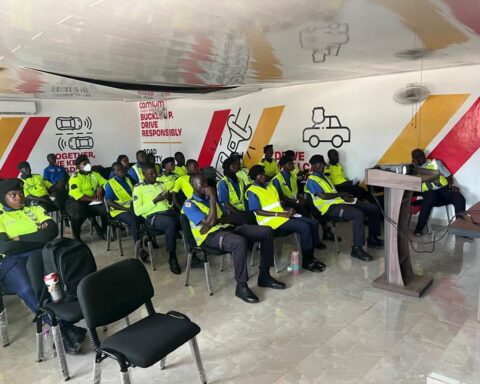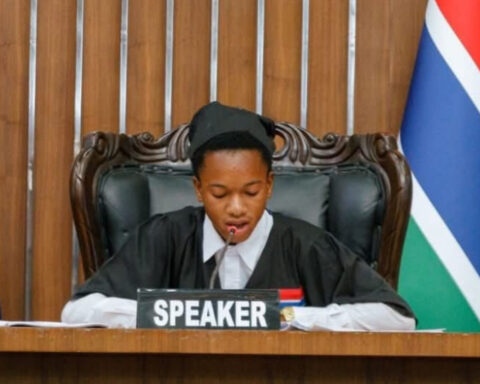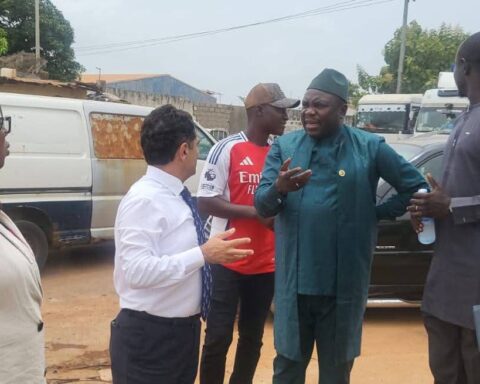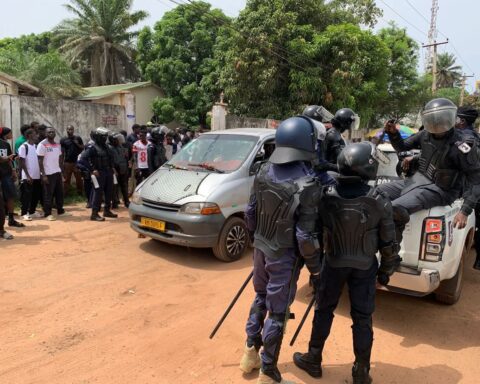By Ndey Jobarteh
I want to begin this reflection by sharing something quite personal. My copy of The Dictator Is Us is not just any book; Cherno Bah bought it and made sure that it bears Alagie Saidy-Barrow’s signature, and Adama Njie carried it from Gambia to Norway. That alone made it precious to me before I even turned the first page. But reading it, slowly, deliberately, and with frequent pauses to catch my breath, transformed it from a signed book into something profoundly deeper, a mirror I wasn’t entirely ready to look into.
This isn’t an easy book to read, not because of its language (which is clear and direct), but because of the hard truths it lays bare. Alagie Saidy-Barrow doesn’t just tell us about Yahya Jammeh’s brutality; he tells us how we, as Gambians, made it possible in small ways and large. He forces us to look at ourselves, our silence, our compromises, our greed, our tribal loyalties, and sometimes even our cruelty.
Reading through Alagie’s accounts of victims who vanished without a trace, or women humiliated by witch hunts, or the silent offices that turned away from cries for justice, I felt a heaviness I can’t quite describe. There were moments I had to close the book, put it down on my lap, and sit in silence, thinking of all the mothers, fathers, and children who are still searching for answers.
But beyond that sadness, I also felt anger at Jammeh, yes, and all those who enabled him. The lawyers who drafted the decrees that choked our freedoms. The religious leaders who crowned him with titles of piety while he desecrated the very sanctity they claimed to uphold. The journalists who chose flattery over truth became praise singers instead of watchdogs. The everyday people who shrugged and said, “Allah wills it,” so they wouldn’t have to risk losing their comforts.
Alagie writes with an almost ruthless honesty. He does not spare us, not even in our private moral excuses. And in doing so, he forced me to ask myself: what would I have done in their place? Would I have spoken up? Would I have risked everything? Or would I have, quietly and conveniently, looked the other way?
What I appreciated most is that this book doesn’t just retell the horrors of Jammeh’s rule as if they were a distant nightmare. It shows how the seeds of dictatorship are still there, in the mindset of “clearance from the top,” in our still fragile institutions, and in the many ways we normalise small wrongs daily. It’s sobering to realise that the machinery Jammeh built didn’t vanish when he fled; it simply shifted shape.
Alagie also shows how deeply intertwined fear, power, and personal gain can become, how easily good people can slip into complicity, and how dictators are not simply monsters who emerge fully formed but are fed, nurtured, and kept alive by our failings. That truth hurts, but it is necessary.
At the same time, reading this book also made me think of the resilience that sometimes gets overshadowed: the few who stood up when it wasn’t safe, the families who kept searching, and the victims who testified despite threats and trauma. I wish there were even more pages dedicated to them because they remind us that there is another side to our national story, one of courage and integrity, even if rare.
Holding this signed book from Cherno Bah and reading Alagie’s unflinching words, I traced my journey. All the years I’ve spent advocating for justice, running civic education programs, and fighting for accountability suddenly took on a sharper meaning. Because this isn’t theoretical, this is about us, our lives, our neighbours, our families, and our future.
I feel this book is not only relevant but urgently timely for today’s Gambia. We are still grappling with many of the same patterns that enabled Jammeh’s rule: the same petty divisions, the same tribal suspicions, and the same willingness to excuse wrongdoing when it’s convenient. We are still seeing old enablers finding new positions and communities quick to tear each other down over politics. Reading The dictator is us right now almost feels like reading a cautionary manual for the crossroads we stand at today.
There were moments when I was reading this book when I questioned whether we had truly changed. I wondered if we, as a people, had learned enough to make “Never Again” more than just a slogan. I wondered if we were willing to confront our own tribal biases, our tolerance for mediocrity, and our easy forgiveness of people who should never hold public office again.
And yet, despite all these heavy thoughts, I closed the final page with a renewed sense of duty. Because what choice do we have but to keep trying? If this book teaches anything, change isn’t a one-time event. It’s a painstaking, generational process of building institutions, rewriting our cultural instincts, and nurturing a citizenry that refuses to bow to fear.
The dictator is us is more than a book. It’s a national reckoning. It’s a painful, beautifully written testament to what went wrong, and what must go right if we are ever to heal. I believe it belongs in every Gambian home, every political science and social science class at the University of The Gambia, and most importantly, in our conversations with our children.
So thank you, Alagie, for daring to write what many would rather forget. And thank you, Cherno, for placing this book in my hands. I carry it now not just on my shelf but in my conscience, and I believe it is the book we need now in today’s Gambia.





